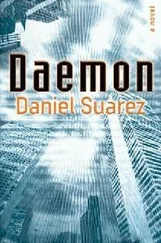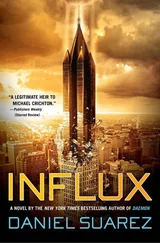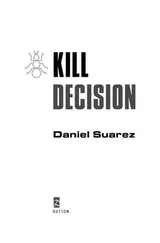“Listen, whatever you’re going through—”
“Just look at corn and soybeans, subsidized with taxpayer money—creating a market that wouldn’t otherwise make sense. Why? So agribusiness firms have cheap inputs to make processed food. The taxpayers are basically subsidizing corporations to make crap, when we could have grown real food on our own. But, of course, they’ve made growing food illegal now. . . .”
He started to walk away. “I want you to leave with me.”
“Dad, there was a reason you didn’t want me or Dennis to go into farming. You wanted us to go to college and get away from here. Do you remember why? Do you remember what you said to me?”
He stopped. He didn’t face her, but nodded. “I said that there’s no future in farming.”
“Food is the very heart of freedom. Don’t you realize that? If people don’t grow the food, we both know who will: biotech companies like Halperin Organix. How can people be free if they can’t feed themselves without getting sued for patent violations?”
He looked around the warehouse as workers passed by. “Look, your mother and I did the best we could for—”
She came up and put a hand on his shoulder. “I know you did. You’re honest. So was granddad. And so am I. But they’ve rigged the game. It was like this during the Gilded Age of the 1890s. And then again in the late 1920s. It’s nothing new. We’re just trying to break the cycle.”
He stared at her, unsure whether he wanted to understand what she was saying. “Then you’re not coming home with me?”
She shook her head. “No. I’ve got work to do. I’ll be back home later tonight. ”
He shrugged. “You know, I worry about you. You and your brother. I know it hasn’t been easy. I . . . there’s no real jobs anymore. I feel like we’ve let you down.” Fossen started to tear up.
She hugged him tightly. “Dad, you didn’t let me down.” She looked back up at him. “You taught me everything I need to know: self-reliance, self-respect, community. Just don’t be surprised if I actually put it to use.”
Fossen sat in his La-Z-Boy chair with the television off. He listened to the old house settling. To the ticking of the grandfather clock in the foyer and the refrigerator fan turning on and off as the minutes passed.
It was late.
Then he heard the dogs barking and a car coming up the long drive. He didn’t move. He heard footsteps on the back porch, and then the door in the mudroom squeak open and thump closed. Still he sat motionless.
A creak on the floorboards nearby. Jenna’s voice. “Dad? It’s late. You okay?”
He just held up a letter on embossed stationery. “You know, it’s been nearly five years. And after all that time, it’s just takes one letter.”
She stood in the doorway.
“How did you do it?”
“I told you.”
“No. You really didn’t, Jenna.” He looked up at her. “How does a twenty-three-year-old kid get a multibillion-dollar company to drop a lawsuit?”
“It was the Daemon.”
“What is the Daemon?”
“It’s a digital monster that eats corporate networks. They’re scared to death of it—because it has no fear.”
He turned to face the dark television screen again. They sat in silence for several moments.
“What happens now?”
“That depends on whether you want to continue running this place as part of their system.”
Fossen looked up at the framed photograph of his eldest son in dress uniform on a nearby bookshelf. He nodded. “I didn’t realize we had two warriors in the family.”
He turned around to face her. “What do we do?”
She smiled. “The first thing we do is stop planting corn.”
“And plant what?”
“What people need.”
Southhaven was a self-styled “six-star” golf resort catering to business. Pharmaceutical companies marketing blood thinners to cardiovascular surgeons, investment retreats, political fund-raisers—all of them were capable of filling the two hundred and eighty outrageously expensive guest bungalows. In another age it might have been a duke’s estate—a place where the affairs of men might be discussed with sophistication while wives strolled the gardens and the children took riding lessons. Now it was a rental that offered double mileage points.
With a world-class golf course, four restaurants, and a bar that permitted cigar smoking, Southhaven Golf Resort was the ideal place to get business done in a relaxed atmosphere. The resort was located on Ocean Island—one of several barrier islands off the southern Atlantic coast of Georgia. Gated and patrolled, the private island consisted of the Southhaven resort, its golf course, and a hundred or so sprawling Mediterranean-style beach houses—third or fourth homes to people looking for somewhere to dump capital gains. Most of the homes were unoccupied at any given time.
A big selling point for Ocean Island was its remoteness. It was buffered by a mile and a half of marshland to the west and north and linked to the mainland by a single causeway. To the east and south lay only the Atlantic Ocean.
In short, it was perfect for The Major’s purpose. He’d long ago graduated from clandestine meetings in run-down safe houses or industrial spaces. He was the establishment now, and he enjoyed its perquisites.
The Major sat on the arm of a sofa in their Emperor Bungalow, talking on his encrypted cell phone with a broker in Hong Kong. He glanced at his watch. Eleven fifty P.M. “Yes. It should be part of the dark liquidity pool. Right. Two hundred thousand shares.”
He looked up at the dining room to see half a dozen senior managers of international security and military providers gathered around a table strewn with maps of the Midwestern United States, photographs, and documents. No two of the men had the same accent—South African, Eastern European, Australian, American, British, Spanish. Several were smoking as they pondered the maps. They were debating something, and the British executive motioned for The Major to rejoin the table.
He knew he wouldn’t have too many more chances to shift his investments. And he wasn’t about to miss the upcoming event.
The Major nodded and spoke into the phone. “Yeah. Empty the Sutherland—”
His phone connection suddenly dissolved in a wave of static. The Major looked at the phone’s display and saw the message “Connection Lost.” He cursed and moved to dial again when he realized he suddenly had no network signal.
“Damnit!”
The Major looked up to see one of the nearby security executives putting his own phone onto his belt clip.
The man shrugged to the others. “No signal.” Then pointed to a map. “Look, I’ll call them back, but we’re going to need materiel in-country for security teams well before then.”
But The Major was no longer concerned with logistics for the counterinsurgency campaign. He was suddenly concerned about his own survival.
They had just lost wireless connectivity. The Major remembered all too well that the attack at Building Twenty-Nine was preceded by radio jamming. The FBI operation at Sobol’s mansion was also plagued by wireless communications problems—all caused by ultrawideband signals. The same technology used by the Daemon’s automated vehicles to communicate with the darknet. It was battle-level bandwidth that steamrolled everything else.
The Major reached for a remote control on the coffee table in front of him. He used it to turn on the radio in the living room entertainment center. Nothing but static. He kept scanning stations.
The South African executive frowned at him. “Ag, Major. We need you to make a decision here. Can we hold off on the stereo?”
Читать дальше












